- Home
- J. R. Ward
Crave fa-2 Page 5
Crave fa-2 Read online
Page 5
To Matthias, that would be child’s play.
Isaac felt his conscience, which had been long silent, send up a holler, but the logic was sound: She looked like the kind of lawyer who could get things done in the system, and as much as he hated to involve her in the mess he was in, he wanted to stay alive.
“I’d be grateful if you could do that, ma’am.”
She took a deep breath, like she was having a break in the middle of a marathon. “Good. All right then. Now, it says here you live over on Tremont. How long have you been there?”
“Just over two weeks.”
He could tell by the way her brows went together that that wasn’t going to help him much. “You’re unemployed?”
The technical term was AWOL, he thought. “Yes, ma’am.”
“Do you have any family? Here or elsewhere in the state?”
“No.” His father and brothers all thought he was dead, and that was just fine with him. And them as well in all likelihood.
“At least you don’t have any priors.” She closed the file. “I’ll go up in front of the judge in about a half hour. The bail’s going to be steep . . . but I know some bondsmen we could approach to put up the money.”
“How high do you think it will be?”
“Twenty thousand—if we’re lucky.”
“I can cover it.”
Another frown and she reopened his file, taking a second gander at his paperwork. “You stated here that you have no income and no savings.”
As he stayed quiet, she didn’t give him flak and didn’t seem surprised. No doubt she was used to people like him lying, but unfortunately, he was willing to bet his life that what he was keeping from her was far, far deadlier than what her Good Samaritan antics usually brought her in contact with.
Shit. Actually, he was betting her life on it, wasn’t he. Matthias cast a wide net when it came to assignments, and anyone standing next to Isaac ran the risk of being in the crosshairs.
Except once he was gone, she was never going to see him again.
“How’s your face?” she asked after a moment.
“It’s fine.”
“It looks as if it hurts. Do you want any aspirin? I’ve got some.”
Isaac stared down at his busted hands. “No, ma’am. But thank you.”
He heard the clip-clip of her high heels as she got to her feet. “I’ll be back after I—”
The door opened and the muscle who’d taken him up from holding came barreling in.
“I’m off to talk to the judge,” she said to the guard. “And he was a perfect gentleman.”
Isaac allowed himself to be dragged upright, but he wasn’t paying attention to the officer. He was staring at his public defender. She even walked like a lady—
His arm got yanked hard. “You don’t look at her,” the guard said. “Guy like you doesn’t even look at someone like her.”
Mr. Manners’ death grip was a little annoying, but there was no faulting the SOB’s opinion.
Even if he’d had a garden variety job and nothing more than a couple of speeding tickets, Isaac wasn’t anywhere near that league of woman. Hell, he wasn’t even playing in the same sport.
CHAPTER 6
Jim Heron had long been aware that there were two kinds of gyms in the world: commercial and old-school. The former had coordinating color schemes and women taking spinning classes in full makeup and guys with John Mayer carp tattoos pumping weights with padded grips. You were expected to wipe down the machines after you used them and chirpy, spray-tanned trainers checked you in as you came and went.
He’d tried out one of those right after he’d left XOps. It had nearly made him go couch potato.
The old school was more up his alley and that was exactly what he and Adrian and Eddie walked into in South Boston. Mike’s Gym was a man’s world, baby: Place smelled like an armpit, had walls that were prison-worthy, and was hung with faded pictures of Arnold from back in the eighties. The mats were neon blue, the weights were iron, and the single stationary bike in the corner was one of those wind-resistant jobs with the caged fan.
Damn thing was a relic and had dust on the seat.
The men who were doing circuits on the machines or free-weighting it were big, quiet, and had tattoos of the Virgin Mary and Jesus and the cross. There were a lot of broken noses that had healed up cockeyed and some bad caps on gritted front teeth that were no doubt from hockey games or bar fights.
Undoubtedly everyone knew everybody else because they were all related somehow.
He felt right at home as he came up to the front desk. Guy behind it was sixty, maybe sixty-five, with ruddy skin and pale blue eyes and hair that was whiter than the froth on a Bass Black & Tan.
“What can I do for you boys?” the man said, lowering the Boston Herald.
A couple of the members glanced over, and kept staring. Jim and his backups weren’t lightweights, but they were unknowns, which put them into what-the-hell? territory.
“I’m looking for a guy,” Jim said as he took out the flyer with Isaac’s pic on it and spread the thing flat on the chipped Formica counter. “You seen him around here maybe?”
“No, I ain’t,” the guy replied without looking down. “I ain’t seen nobody.”
Jim glanced around. A lot more eyes on them and a lot of weights pausing. Clearly, pushing the old man wasn’t a smart move if he didn’t want to get bum-rushed.
“Okay. Thanks.”
“No problem.” The Herald snapped up into place.
Jim turned away and refolded Isaac’s picture. As he went for the door, he cursed under his breath. This was the third place they’d tried, and they’d gotten nothing but stonewalled—
“Hey. I know him.”
Jim stopped and looked over his shoulder. A guy with a Boston Fire Department T-shirt came over.
“My pops don’t like to get involved.” The guy nodded down at the flyer. “Who is he to you?”
“My brother.” And that wasn’t a total lie. They were related in a visceral way because of what he and Isaac had been through in XOps—plus there was that whole debt thing.
“He was arrested last night.”
Jim’s brows shot up. “No shit?”
“Bunch of my cousins are cops and they busted a fight ring. Your bro’s a straight-up killer. Only reason anyone ever got into the octo with him was for the big purse, but he never lost. Not once.”
“How long he been in town?”
“I only saw him fight, like, three times.” Saw was pronounced sore. “Listen, ’round here, bunch of fuckers want to get together and beat each other, we’ll let ’em do their thing. But you gotta keep it honest—that’s why they were raided. The promoter was throwing the bouts except for the ones your boy was in.”
Fuckin’ A. Isaac in the system was not a good thing.
“Pops, lemme have the Herald?” The guy reached over to his dad and took the newspaper, looking through it. “Here.”
Jim read the article fast. Underground fighting, blah, blah, blah—Isaac Rothe? Wait, he was in under his real name?
Talk about a target on his chest: Matthias could easily just send someone into the penal system to off the SOB.
“If you want to find your brother . . .” The firefighter’s face grew calculating. “I can tell you where he’ll be as soon as he gets out.”
Not more than two hours after Grier left her client and went to the judge, she was back behind the wheel of her Audi A6 and stuck in traffic around the Boston Common. Fortunately, the pace picked up through Chinatown and then she was out the other side on Tremont Street.
Part of her rush was that she didn’t really have time to take this diversion. She had a meeting with a Fortune Fifty company at one o’clock in her office in the Financial District . . . and all those skyscrapers were at the moment in her rearview mirror and getting smaller.
But she needed to know more.
Which was the other half of her burning hurry.
As
she cursed herself, she braced for Daniel to make an appearance and glanced into the backseat. When he didn’t show up, she took a deep breath.
She really didn’t need her metaphysical editorial board at the moment.
Daniel had died two and a half years ago and he first came to her in a dream the night before his funeral. It had been such a relief to see him healthy and clean and not in a heroin nod, and in her sleep, they had talked as they’d been able to before the addiction had really ground him down. The jump to “real life” had occurred about six months later. One morning, she’d been talking to him and her alarm had gone off. Without thinking twice about it, she’d reached over and silenced the thing . . . only to realize she was awake and he was still very much with her.
Daniel had smiled as she’d shot upright—like he was proud of himself. And then in his chilled-out way, he’d informed her that she wasn’t losing her mind. There was, in fact, an afterlife, and he was in it.
It had taken some time to get used to, but two years later, she no longer questioned his periodic hi-how-areyas—although she did keep his visits to herself. After all, just because she didn’t think she was crazy, that wasn’t to say others might disagree—and who needed that? Besides, if he was a hallucination and she was turning into something out of A Beautiful Mind, well . . . it worked for her, so to hell with the mental-health experts: She had missed Daniel so much and she had him back in a way.
Refocusing on the brick walk-ups that rose on either side of Tremont Street, she tracked the numbers when she could see them around the doors. On some level, she couldn’t believe she’d gotten her client bail, but then, his lack of priors and the general overcrowding in the system had worked in their favor.
Mr. Rothe, on the other hand, had seemed neither surprised nor pleased when she’d told him. He had just asked her in his polite, quiet way to go to his apartment and get twenty-five thousand dollars in cash—because there was no one he could call to make that kind of a run.
Sure. No problem. Right.
Because handling ill-gotten cash didn’t make her an accomplice or threaten her bar status in any way.
She was still shaking her head at the situation as she slowed down in front of a three-story house that had been cut up into apartments. There was no parking space for miles—naturally. With a curse, she went around the block a couple of times, wondering if she dared double-park it, when—hallelujah—someone pulled out across the street. It took her a second and a half to do an illegal U-ey and wedge her sedan into the spot. She didn’t have a residential parking sticker, but she wasn’t going to be long, and at least she wasn’t in front of a hydrant.
Getting out, she huddled into her thin wool coat. April in New England on the ocean translated into thirty days of bitter, wet wind that chilled you to the bone and wreaked havoc on your hair. And that wasn’t the worst of it—there were puddles all over the place, even when it hadn’t rained. Everything in town seemed to drip, like the city was a sponge that had surpassed its capacity . . . the cars, the buildings, the spindly trees, all of it wicking the moisture out of the air and channeling it down onto the perma-damp asphalt and concrete beneath your feet.
Definitely more L.L. Bean than Louboutin.
At the front door of the house, she craned in for a closer look at a seventies-era intercom that had three little buttons. Per Isaac’s instructions, she punched the one on the bottom.
A moment later, the ring was answered by a woman dressed in a retina-busting, retro afghan the size of a bed-sheet. Her hair was cranked into corkscrew curls the color of a Halloween pumpkin and there was a cigarette between the painted fingertips of her right hand.
Evidently, her look had gotten stuck in the same era as the intercom.
“You’re Isaac’s girl?”
Grier stuck her hand out and did not correct the statement. Figured it was better than “attorney.” “I’m Grier.”
“He called here.” The woman stepped back. “Told me to let you in. You know, you don’t seem like his type.”
A quick image of the man sitting so silent and deadly flashed through Grier’s mind: on that theory, the guy should have been dating a Beretta.
“Opposites attract,” she said as she looked over the landlady’s shoulder. Down at the end of the tight hall, the staircase loomed in the distance like a spiritual beacon, at once apparent and yet unattainable.
“Well . . .” The landlady lounged against her flocked wallpaper. “There’s opposites, like one person is a talker and the other isn’t. And there’s opposites. How did you meet?”
As her nosy stare locked on Grier’s gold necklace, there was the temptation to answer, “the penal system,” just to see how far the woman’s eyes would bug. “We were matched up.”
“Oh, like eHarmony?”
“Precisely.” The main points of compatibility being his requiring someone with a law degree to get him bail and her having a JD from Harvard. “Will you let me in his place now?”
“You’re in a hurry. You know, my sister tried eHarmony. The guy she met was a frickin’ jerk.”
It turned out that getting the landlady up the stairs took about as much effort as throwing her over a shoulder and carrying her to the third floor. However, ten minutes of question deflection later, they were finally at the door.
“You know,” the landlady said as she put her keys to work and unlocked things, “you should think about—”
“Thanks so much for all your help,” Grier said as she slipped inside and shut the woman out in the hall.
Leaning against the wood panels, she took a deep breath and listened to the grousing fade on its way downstairs.
And then she turned around . . . Oh, God.
The barren room was as wilted and lonely as an old man, proving that poverty, like age, was a great equalizer—she could have been in any tenement or drug house or condemned building in any city in any country: The old pine floors had all the gloss of a sheet of sandpaper, and the ceiling had water stains in the corners that were the color of urine. No furniture in sight, not one table or chair or TV. Just a sleeping bag, a pair of combat boots and some clothes in precisely folded piles.
Isaac Rothe’s pillow was nothing but a sweatshirt.
As she stood just inside the apartment, all she could think of was the last place her brother had stayed. At least her client’s was clean and there weren’t hypodermic needles and dirty spoons everywhere: This sparseness did not appear to be the result of an addict’s slanted priorities.
But good Lord, it was still a shocker to remember where Daniel had ended up. The filth . . . the cockroaches . . . the rotting food . . .
Forcing herself to get a move on, she went into the kitchen and wasn’t surprised to find all the cupboards and the drawers and the refrigerator empty. Bathroom had a razor, shaving cream, toothbrush, and soap.
In the bedroom, which was totally unoccupied, she went into the closet and used the penlight on her key chain to look around inside. The panel that Isaac had described was over to the left and she got it open without a problem.
And yes, there was, in fact, a Star Market plastic bag with twenty-five thousand dollars in cash hidden in the dusty space between the framing boards. Or at least the loose collection of bills looked and weighed like that much money—
Creak.
Grier froze.
Listened hard.
Glancing over her shoulder, she stopped breathing. But all she heard was the thunder of her heart.
When the silence persisted, she shoved the bag back where it had been, replaced the panel and shut the closet again; then she went over to the window across the way. The glass was so damned milky with grime, it wasn’t as if anyone could see in from the outside, and yet she felt as though she was being watched. . . .
Something flashed and she leaned in closer.
At the top of the window, a pair of tiny metal plates had been stuck to the cracking paint, one on the frame, the other on the sash. There was another set
at the bottom and the things appeared to be made of copper that had been coated with a matte finish of some kind. If she hadn’t come over, she never would have noticed them.
Grier went back through living room, the kitchen and the bathroom, and found the same thing on every single window. Top and bottom, two sets. And the doors were likewise equiped—all of them, interior and exterior.
She knew exactly what the plates were.
Her multimillion-dollar house on Louisburg Square in Beacon Hill had them on its own sashes and jambs. They were state-of-the-art security alarm contacts.
Standing in the center of the apartment, her mind ran through the math: bowling-alley empty, forty-dollar sleeping bag for a bed, no phone . . . but the place was wired for sound like it was a bank safe.
Time to dig around.
Using the soft cloth that she cleaned her sunglasses with, she went through her client’s personal effects without leaving fingerprints behind—and she found the alarm’s receiver in the folds of the sleeping bag. As well as a pair of forty-caliber handguns that were fitted with silencers and had no serial numbers on them and a hunting knife that was well-worn but viciously sharp.
“Jesus . . . Christ,” she whispered, putting everything back just as she’d found it.
Rising up from her crouch by the “bed,” she went into the kitchen. Systematically going from handle to handle, she wiped off her prints and then looked under the sink and behind the refrigerator. Next stop was the bathroom, and her hands were shaky as she got rid of any traces she might have left behind and also flashed her penlight into dark corners.
In her haze of jerky suspicion, she was well aware that she was violating her client’s privacy, but the bloodhound in her couldn’t stop—the frantic hunt was like a muscle that hadn’t been used and needed the exercise. She had done this so many times with Daniel’s apartments and cars, and by the time she finished going through Isaac Rothe’s place, she felt sweaty and vaguely nauseous in a very familiar way.
No drugs, though. Anywhere.
Returning to the living room, she measured the windows once again. The twenty-five grand would be worth protecting . . . but the security system hadn’t been activated.

 Lover Avenged
Lover Avenged Dearest Ivie
Dearest Ivie Lover Unbound
Lover Unbound Blood Fury
Blood Fury Lover Revealed
Lover Revealed The Thief
The Thief Lover Enshrined
Lover Enshrined Blood Kiss
Blood Kiss An Insiders Guide
An Insiders Guide Envy
Envy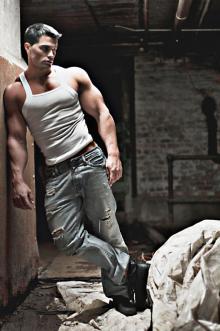 Crave
Crave Lover At Last
Lover At Last Possession
Possession The Beast
The Beast Lover Awakened
Lover Awakened Lover Reborn
Lover Reborn The King
The King Father Mine
Father Mine Lover Mine
Lover Mine Lover Eternal
Lover Eternal The Chosen
The Chosen The Shadows
The Shadows Lover Unleashed
Lover Unleashed Covet
Covet The Savior
The Savior Devil's Cut
Devil's Cut Dark Lover
Dark Lover Rapture
Rapture The Angels' Share
The Angels' Share Blood Vow
Blood Vow The Bourbon Kings
The Bourbon Kings The Billionaire
The Billionaire The Jackal
The Jackal Revealed
Revealed The Sinner
The Sinner The Jackal (Black Dagger Brotherhood: Prison Camp)
The Jackal (Black Dagger Brotherhood: Prison Camp) Immortal
Immortal Where Winter Finds You
Where Winter Finds You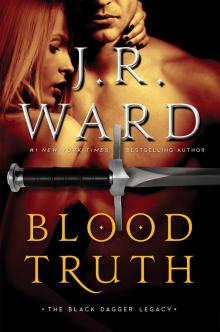 Blood Truth
Blood Truth A Warm Heart in Winter
A Warm Heart in Winter Consumed
Consumed Lover Reborn tbdb-10
Lover Reborn tbdb-10 The Black Dagger Brotherhood Novels 5-8
The Black Dagger Brotherhood Novels 5-8 Prisoner of Night
Prisoner of Night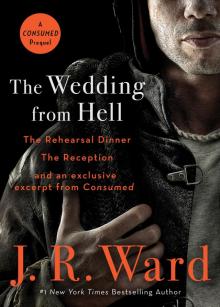 The Wedding from Hell Bind-Up
The Wedding from Hell Bind-Up Envy fa-3
Envy fa-3![Covet - A Novel of Fallen Angels [01] Read online](http://i1.bookreadfree.com/i/03/24/covet_-_a_novel_of_fallen_angels_01_preview.jpg) Covet - A Novel of Fallen Angels [01]
Covet - A Novel of Fallen Angels [01] The Rebel
The Rebel The Black Dagger Brotherhood
The Black Dagger Brotherhood The Rogue
The Rogue The Wedding from Hell, Part 3: Exclusive Excerpt of Consumed
The Wedding from Hell, Part 3: Exclusive Excerpt of Consumed Heart of Gold
Heart of Gold The Black Dagger Brotherhood_An Insider's Guide
The Black Dagger Brotherhood_An Insider's Guide![[Fallen Angels 01] - Covet Read online](http://i1.bookreadfree.com/i1/04/03/fallen_angels_01_-_covet_preview.jpg) [Fallen Angels 01] - Covet
[Fallen Angels 01] - Covet The Renegade
The Renegade Blood Fury: Black Dagger Legacy
Blood Fury: Black Dagger Legacy Rapture: A Novel of The Fallen Angels
Rapture: A Novel of The Fallen Angels Lover At Last: A Novel of the Black Dagger Brotherhood
Lover At Last: A Novel of the Black Dagger Brotherhood Lover At Last tbdb-11
Lover At Last tbdb-11 Lover Revealed tbdb-4
Lover Revealed tbdb-4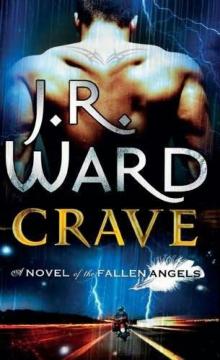 Crave fa-2
Crave fa-2 Lover Awakened tbdb-3
Lover Awakened tbdb-3 Lover Unleashed bdb-9
Lover Unleashed bdb-9 The Story of Son
The Story of Son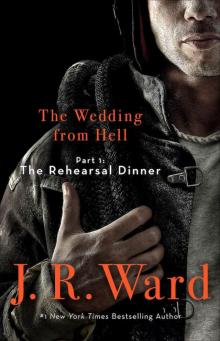 The Wedding from Hell_Part 1_The Rehearsal Dinner
The Wedding from Hell_Part 1_The Rehearsal Dinner An Irresistible Bachelor
An Irresistible Bachelor Rapture fa-4
Rapture fa-4 Possession fa-5
Possession fa-5 The Black Dagger Brotherhood Novels 1-4
The Black Dagger Brotherhood Novels 1-4 Lover Eternal tbdb-2
Lover Eternal tbdb-2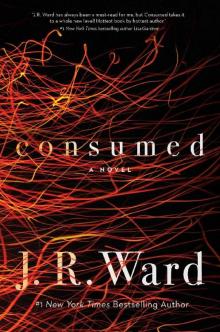 Consumed (Firefighters #1)
Consumed (Firefighters #1) Covet fa-1
Covet fa-1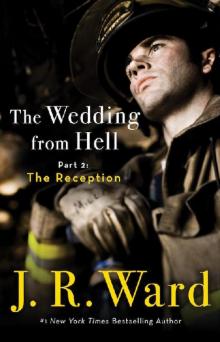 The Wedding From Hell: Part 2: The Reception
The Wedding From Hell: Part 2: The Reception Lover Reborn: A Novel of the Black Dagger Brotherhood
Lover Reborn: A Novel of the Black Dagger Brotherhood